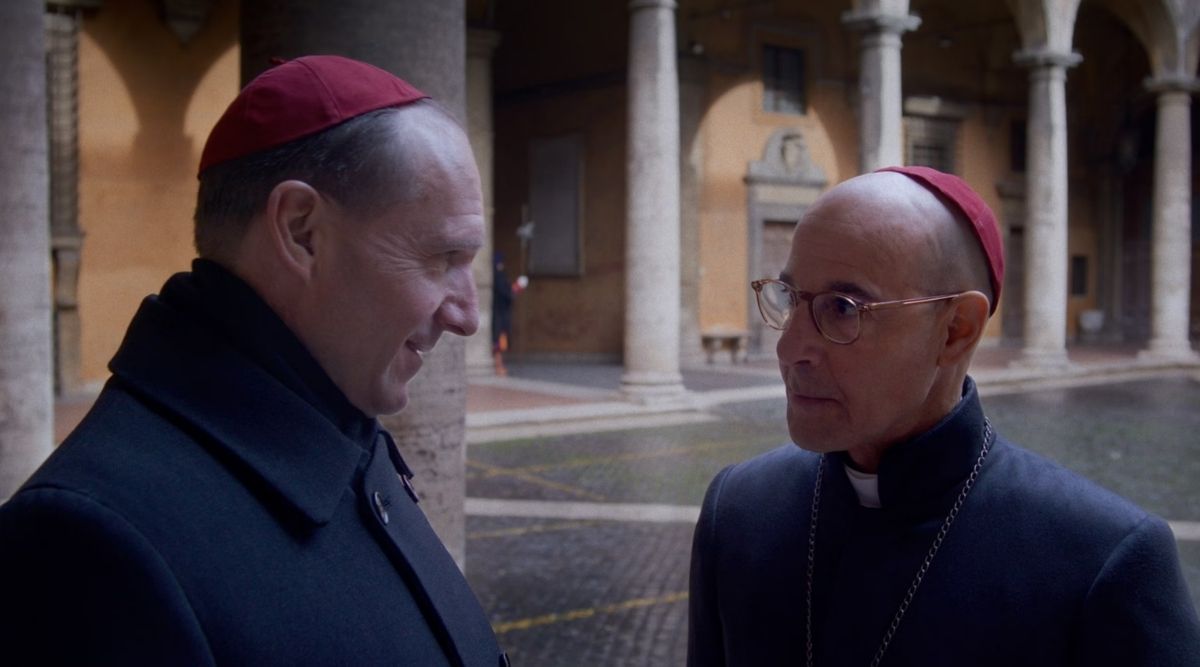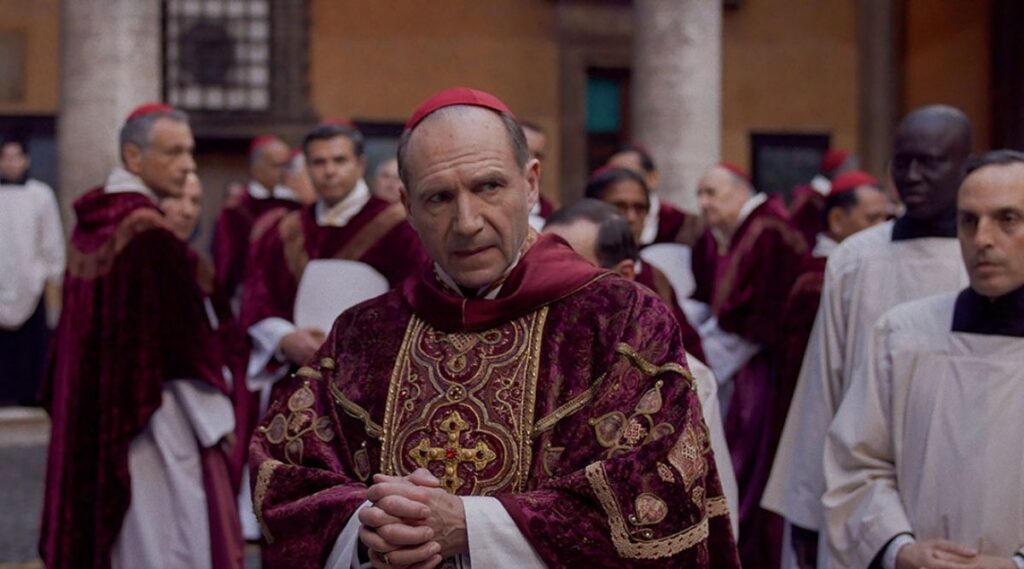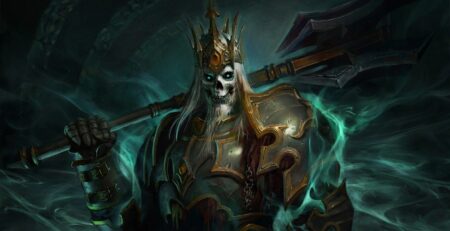Despite tackling an institution as old as The Papacy, director Edward Berger unearths biting truths about our current polarized state with the gripping Conclave. Its tale about the secretive process of selecting a new Pope not only interrogates the role of organized religion in an ever-changing world but holds a mirror up to all our hypocritical and socially stagnant systems. The worlds of faith and politics don’t so much collide in Conclave but reveal themselves to be intrinsically intertwined with great wit, suspense, and poignancy. In reminding us of such blurred lines, Berger ushers in—what is soon to be everyone’s favourite sub-genre—the “Papal Thriller.”
After the Pope suddenly passes away, Cardinals from all corners of the globe are summoned to the Vatican to elect his successor. They are quickly sequestered, electronic devices are locked away, and so begins the titular, three-day-long proceeding—all of which is overseen by Cardinal Lawrence (Ralph Fiennes). What is initially a contest between the progressive Cardinal Bellini (Stanley Tucci) and the reactionary Cardinal Tedesco (Sergio Castellitto), soon turns into a Machiavellian powder keg. Secrets and rumours give way to new and emerging candidates, some of whom turn to sabotage to gain an edge. Slowly and surely, some Cardinals rise, and others are mercilessly picked off.
Calculated and deliberate in its vision, Conclave doles out delectable and damming morsels of information with deadly precision. With our attention firmly in its death grip, it becomes impossible to not rest on each remark and bout of clever wordplay. Heartbeats skip with every revelation and declaration, especially when official tallies are proclaimed. Such visceral reactions are a testament to the exacting craft of Conclave. Each knotty conversation operates with a hair-trigger sense of tension that quickly overwhelms and immerses us in this secret, sectioned-off society. It’s why Conclave is most explosive in its moments of contemplative quiet, forcing us to sit with the ramifications of each decision in between each fiery volley of words.
Taking a page from his war epic, 2022’s All Quiet on the Western Front, Berger lends grandiosity and scale to even the smallest, most intimate of interactions and clashes. As if mimicking the omnipotent eye of God, Berger’s lens often peers from high above, patiently zooming in on darkly lit rooms and chambers, capturing gorgeous tableaus of conversations and machinations that threaten to alter the fabric of the faith.
Cinematographer Stéphane Fontaine’s camerawork feels like an extension of the grand halls and chapels the story takes place in, cutting through the stone and artwork to dissect the foibles, failings, and sinful tendencies of a holy institution. For as talky as Conclave is, it’s a visual feast, flush with layered and arresting compositions at each turn.

Yet, Conclave’s seemingly insular story holds sharp commentary about the world at large, especially the fallacy of political gamesmanship. “Is this what we’re reduced to, voting for the least-worst option?” bemoans Cardinal Lawerence, who unintentionally summarizes the American election process in one fell, darkly comic swoop. Like the Cardinal, many currently experience a crisis of faith, not in God or country, but in the systems that oversee it.
Berger and screenwriter Peter Straughan paint a humorous but piercing critique of both the Church’s inertia and our collective penchant for it. They aim at institutions catering to their selective bases without accounting for the alternative opinion. The bold swings Berger and company take are too fascinating and incendiary not to relish. The result is a final twist that, while primed to ignite derision from ardent Catholics, keeps the conversation wide open—something in short supply across the greater socio-political landscape.
Conclave finds Fiennes in top form as a high-ranking member of the Vatican, disillusioned by the stringent structure of the faith he holds dear. Both combustive and kind, Fiennes lends depth and colour to a character attempting to spur change while being beholden to its traditions. Tucci, Lucian Msamati, and John Lithgow all turn in taut, riveting work, but it’s Castellitto’s theatrical Tedesco who steals our attention. It’s a performance that’s both loud and subtle, commanding rooms with the smallest of mannerisms.
Isabella Rossellini’s Sister Agnes speaks volumes with a muted presence. Her limited screentime, comments on the limitations imposed on the role of women in the Catholic Church, and other various institutions. When she does speak, it’s direct, taking the form of bombshells. Rossellini doesn’t allow her character to be sidelined, often controlling the frame with her stoic, unreadable face.
Each intense exchange doubles as dynamite in Conclave, rigged to ignite a conversation that desperately needs to be held in an increasingly hostile and resistant world. It’s the rare thriller that champions mystery and debate— and, like its hero, hopes we understand that “certainty is the deadly enemy of unity and tolerance.”
Conclave screened as part of the 2024 Toronto International Film Festival and will be released in theatres on November 1, 2024
Conclave
-
Rating - 8.5/108.5/10
TL;DR
The worlds of faith and politics don’t so much collide in Conclave but reveal themselves to be intrinsically intertwined with great wit, suspense, and poignancy.





